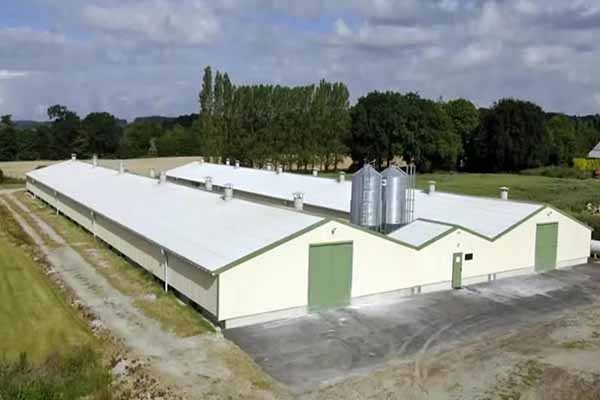Optimizing Chicken Farming in Kenya: A Comprehensive Guide to Battery Cages for 20,000 Chickens
Understanding Battery Cages for Large Scale Chicken Farming
Battery cages have revolutionized the poultry industry, providing an efficient and scalable solution for large-scale chicken farming. In Kenya, where poultry farming is a key component of the agriculture sector, understanding the benefits and implementation of battery cages is crucial for successful operations.
Battery cages offer a controlled environment that enhances productivity, reduces disease spread, and simplifies management. With a capacity to house up to 20,000 chickens, these cages can significantly increase the profitability of a chicken farm.
Benefits of Battery Cages for 20,000 Chickens in Kenya
– Increased Productivity: Battery cages allow for optimal space utilization, ensuring that each chicken has ample room for movement, which leads to higher egg production rates.
– Easier Management: The structured design of battery cages makes it easier to monitor the health and well-being of the chickens, reducing the risk of disease outbreaks.
– Cost-Effective: By housing a large number of chickens in a compact space, battery cages help reduce costs associated with feed, water, and labor.
Key Considerations for Implementing Battery Cages in Kenya
– Space Requirements: For 20,000 chickens, a farm would require a substantial amount of space, typically around 1000 square meters.
– Ventilation: Proper ventilation is essential to maintain optimal conditions for the chickens, ensuring their health and well-being.
– Water and Feed System: An automated water and feed system is recommended for efficient operation and cost savings.
Example: Battery Cage Layout for 20,000 Chickens
Here’s a breakdown of a battery cage layout for 20,000 chickens:
– Cage Height: 1.2 meters
– Cage Width: 0.5 meters
– Cage Depth: 0.5 meters
– Number of Cages: 40,000 (assuming 2 chickens per cage)
– Ventilation: Air exchange rate of 20-30 times per hour
Data to Consider
– Average Egg Production: 250-300 eggs per year per chicken
– Average Cost of Feed: $2.50 per kilogram
– Average Water Consumption: 1 liter per chicken per day
Why Choose LIVI Mechanical for Your Chicken Farming Needs
LIVI Mechanical is a leading provider of high-quality equipment and solutions for poultry farming. With over a decade of experience, we offer customized designs and equipment tailored to meet the unique needs of your farm.
Our team of experts can help you design a battery cage system that maximizes efficiency and profitability. Contact us today for a free, no-obligation consultation.
Take the Next Step
Don’t miss out on the opportunity to elevate your chicken farming business. Leave a comment below or contact us directly to discuss your needs and get a free, customized design and equipment quote.





